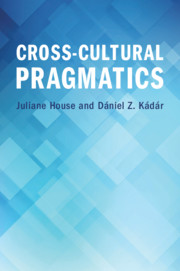Book contents
- Cross-Cultural Pragmatics
- Cross-Cultural Pragmatics
- Copyright page
- Contents
- Figures and Illustrations and Tables
- About the Authors
- Acknowledgements
- 1 Introduction
- Part I The Basics
- Part II Framework
- Part III Applying the Framework
- 10 Ritual Frame Indicating Expressions in Cross-Cultural Pragmatic Research 1: An Applied Linguistic Case Study of Learners of English and Chinese
- 11 Ritual Frame Indicating Expressions in Cross-Cultural Pragmatic Research 2: The Use of T/V Pronouns in IKEA Catalogues across Linguacultures in the Globalised Economy
- 12 Speech Acts in Cross-Cultural Pragmatic Research: A Case Study of Historical Letter Closings
- 13 Discourse in Cross-Cultural Pragmatic Research: A Case Study of War Crime Apologies
- 14 Retrospect and Prospect
- Notes
- Glossary
- References
- Index
13 - Discourse in Cross-Cultural Pragmatic Research: A Case Study of War Crime Apologies
from Part III - Applying the Framework
Published online by Cambridge University Press: 17 September 2021
- Cross-Cultural Pragmatics
- Cross-Cultural Pragmatics
- Copyright page
- Contents
- Figures and Illustrations and Tables
- About the Authors
- Acknowledgements
- 1 Introduction
- Part I The Basics
- Part II Framework
- Part III Applying the Framework
- 10 Ritual Frame Indicating Expressions in Cross-Cultural Pragmatic Research 1: An Applied Linguistic Case Study of Learners of English and Chinese
- 11 Ritual Frame Indicating Expressions in Cross-Cultural Pragmatic Research 2: The Use of T/V Pronouns in IKEA Catalogues across Linguacultures in the Globalised Economy
- 12 Speech Acts in Cross-Cultural Pragmatic Research: A Case Study of Historical Letter Closings
- 13 Discourse in Cross-Cultural Pragmatic Research: A Case Study of War Crime Apologies
- 14 Retrospect and Prospect
- Notes
- Glossary
- References
- Index
Summary
Chapter 13 provides a case study for cross-cultural discourse analysis, by studying war crime apologies performed by representatives of the Japanese and German states. The term ‘war crime Apologise’ (or simply ‘war apology’) refers to a public ritual speech centering on the speech act Apologise, realised by a ratified person (Goffman, 1967) – usually a representative of the state or a state minister – following crimes which were perpetrated during a wartime situation. War Apologise discourse represents a form of political rather than interpersonal Apologise, which can bring about reconciliation, but not necessarily so.Along with illustrating how the unit of discourse can be systematically compared across linguacultures, the chapter also illustrates that cross-cultural pragmatics provides a highly innovative way of engaging in the study of language and politics because it allows us to consider controversial and emotively loaded political phenomena, such as war crime apologies, from a non-ideologised angle.
- Type
- Chapter
- Information
- Cross-Cultural Pragmatics , pp. 217 - 240Publisher: Cambridge University PressPrint publication year: 2021

